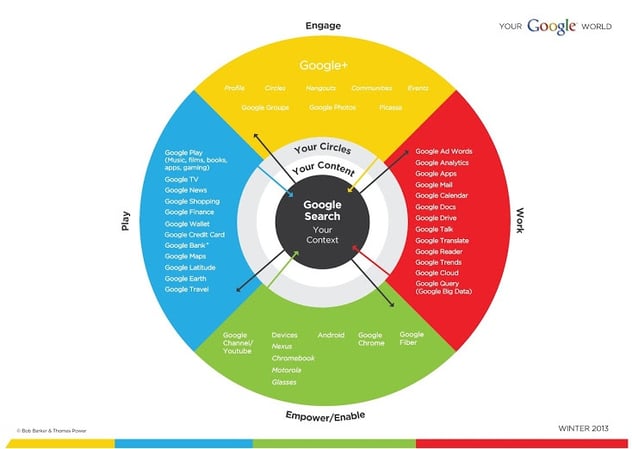
We live in a world today where an endless stream of information is conveniently at our fingertips. Almost all of us carry computers in our pockets and no question, no matter how complex, is left unanswered. In a world of constant connection, constant upgrading, and constant technological advancement, are we losing our ability to think critically on our own? Not only that, but do we have the patients and determination to research and actually read something all the way through where the quick answers are always so readily available?
Since going to college, I’ve been told dozens of times by professors that “Google isn’t a reliable source,” all of them demanding that I actually spend the time to search through piles of novels, journals, and library databases. With those skills acquired, why do I still click on the first non-ad link on Google for anything I’m interested in? Whenever I’m curious about the themes present in Shakespeare’s “Macbeth” or the latest technological advances in the medical field I don’t go to those library databases, I don’t go looking for scholastic journals or peer-reviewed articles, I go to Google. Perhaps I’m simply part of the generation that was trained from the womb to trust Google as a go to source, perhaps I rely on it so much simply because it’s so readily available, or perhaps it is my own laziness. Regardless of the reason, the fact remains that our society seems to have forgotten how to be resourceful in more ways than one. For that reason I’m writing this blog post. Here are some facts about Google, how it influences our society, and the other tools we have at our disposal.

The Facts: Both Good and Silly
- Google intends to scan all known existing 129 million unique books before 2020. (PC World)
- Every day, 16% of the searches that occur are ones that Google has never seen before. (Google Support)
- Google hired a camel to create the street view of a desert. (CNN)
- Google earns $20 billion a year from advertising, that’s more than the primetime revenues of CBS, NBC, ABC, and FOX combined. (IndieBound.org)
- Every minute, 2 million searches are performed on Google (Daily Mail)
- Google is developing a computer so smart it can program itself (Daily Mail)
- On August 16, 2013, Google went down for 5 minutes and in that time, the global internet traffic dropped by 40% (Cnet.com)
- A single Google search requires more computing power than it took to send Apollo 11 to the moon. (Lifehacker.com)
- The woman (Susan Wojcicki) who rented her garage to Larry Page and Sergey Brin in 1998, when they were creating Google, later became the CEO of YouTube. (Wikipedia)
- In the U.S., Google searches for “why is my poop green” peak between 5 and 6 AM (NY Times)
For more facts about Google check out this slideshow: http://www.factslides.com/s-Google
A Google World
Now, in no way whatsoever do I wish to slander the name of Google. Google has in many ways made life more convenient and more connected for the entire planet. From a business perspective, Google is a valid tool for gaining contacts, checking to see where you stand as a search result, and figuring out how you can market yourself better based on what people search for. From a personal level, Google has become the most visited site in the world, surpassing even Facebook. It is used for every purpose from figuring out the weather to catching up on sports news, finding cat videos, and discovering new music. The list truly does go on forever.
My concern with Google is that I feel as though we have become too reliant on it for all of life’s answers. People no longer wish to take the time to read an entire book, journal, or even an article. Google doesn’t just point you in the right direction for the answer, it shoves it along with thirty other answers right in your face. Not to say that immediate information is a bad thing, I think it is more simply that people no longer have the attention span to really search for something.
In Nicholas Carr’s article “Is Google Making Us Stupid?” he mentions a study done by scholars as the University College London in which over the course of five years a team compiled computer logs based on the use of two different websites. Typically, according to the study, “people read no more than one or two pages of an article or book” before leaving for the next site. One quote from the actual report he uses is rather striking:
It is clear that users are not reading online in the traditional sense; indeed there are signs that new forms of “reading” are emerging as users “power browse” horizontally through titles, contents pages and abstracts going for quick wins. It almost seems that they go online to avoid reading in the traditional sense.

I’ve discovered this problem even within myself. As a writing major with a literature minor, my class work has required me to read a plethora of truly wonderful novels, works of non-fiction, and long form journalistic pieces. However, I’ve realized more recently that I hardly read for pleasure anymore and it’s very disheartening to be honest. With this in mind I’ve found myself wondering why? Why is it that this is the direction our society is going? Why has actual reading and research become such an obscure method of discovering new worlds of information?
There is also the problem of some sources that are on the top of the list on Google being less than completely reliable. This isn’t Google’s fault of course, sometimes people search for things that uncredible sources post about all the time and are thus at the top of the list. I feel as though this is particularly true when it comes to the realm of political rhetoric. Take for example how political advertisements work and how easily facts about each and every candidate can be misconstrued. If I type in “commercial for Bernie Sanders” verses “commercial about Bernie Sanders,” I get two completely different pictures of the same exact person. This statement leads me to my next section.
Other Ways to Research Online
While Google is definitely the easiest and most user friendly search engine available to us as a species, there are almost endless other tools at our disposal as well.
- For political purposes there is factcheck.org. Factcheck was established by Walter Annenberg, a publisher and philanthropist who wished “to create a community of scholars…that would address public policy issues at the local, state and federal levels.” Their goal is to increase public awareness and understanding during an otherwise confusing time in the media.
- For research purposes, a great source to use is the Boston Public Library’s website: http://www.bpl.org/. As long as you have a library card, you have access to their entire online database in which you can search through thousands of scholarly articles, journals, and books. You can also see your borrowing history and make a list of books you wish to check out in the future.

- If you’re thinking something more relatable to your own business, http://buzzsumo.com/ is a great search engine for you. For this site, you type in a keyword, topic, or domain for your company and it will pull up recently articles and even show you how they have been shared across social media. So instead of searching “best keywords for small clothes business” you can type in “clothing industry” and see all the latest, relevant news.
- If you’re feeling curious and want to learn something new on the internet, a great site for you is https://www.wolframalpha.com/. This site compiles thousands of externally sourced “curated data” files and has the tagline “computational knowledge engine. Here you can search by topic, keyword, and even just click the random button to find some concrete new information.
- For quality images to use for your website without the worry of licensing or copyright fees, https://www.flickr.com/ is the one for you. Simply type the kind of image you want into the search bar and click on the far left drop down menu to select “Creative Commons” for the licensing. Creative Commons means that you can use whatever photo is there for whatever purpose you need. So rather than risk it using a cool Google Image, check this site out and feel secure in your design.
